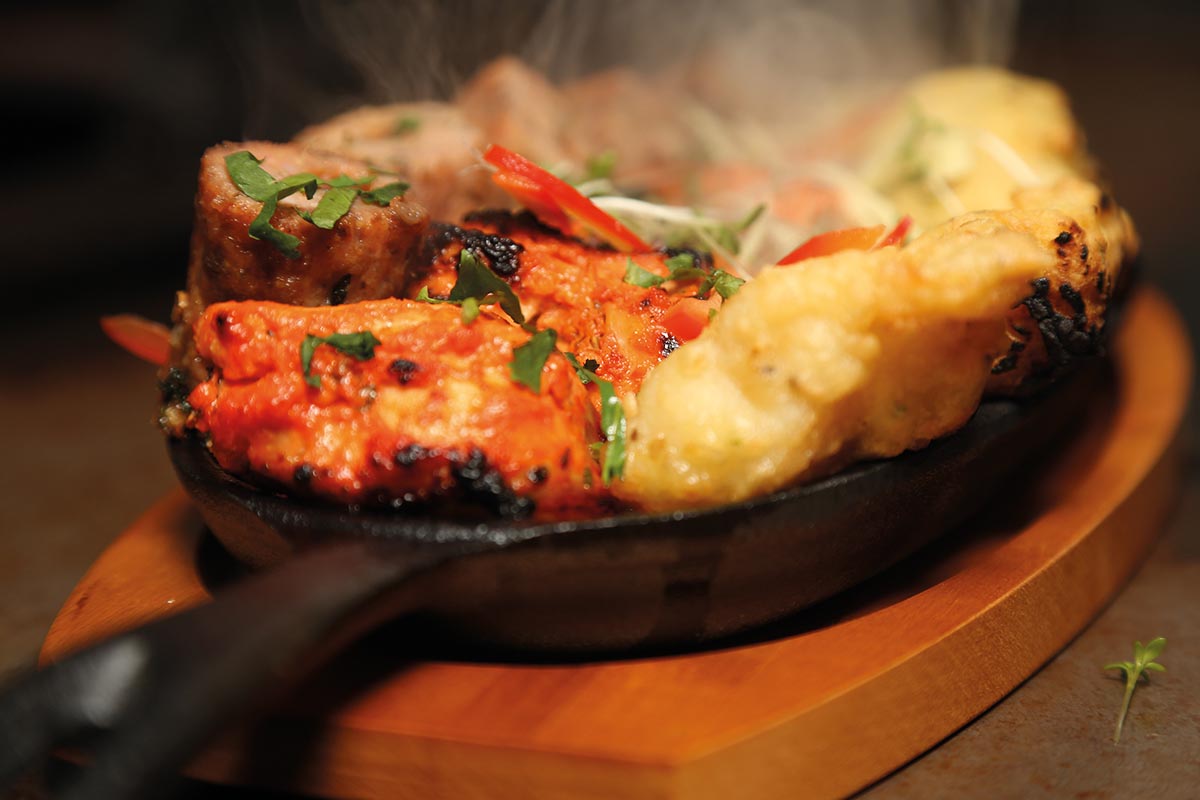
“It Took Me Years To Realise Racism Fuelled My Eating Disorder”
19-year-old Varsha Yajman struggled with an eating disorder, until she realised racism, South-Asian stereotypes and familial stances fuelled her disorder and forced her into silence
Content Warning: This article discusses disordered eating in a way that some readers may find distressing.
19-year-old, Indian-Australian advocate for mental health and climate justice, Varsha Yajman struggled with anorexia for years.
Through her relationship with food and her body, Varsha recalls how overt and internalised racism, South Asian stereotypes and familial stances on mental health fuelled her eating disorder and forced her into silence.
We speak to Varsha about her journey with mental health and racism.
“Fitting in – fatphobia and internal racism”
My relationship with food has been quite strained since the age of 12. While I certainly had comments made about my body younger to that, it was only at 12 that I began comprehending what these comments meant.
I had just entered high school and going from an environment that was so diverse in primary school to one that was predominantly white was difficult.
Looking back, I recognise that my fatphobia and internalised racism resulted in me thinking a lower weight would allow me to “fit in” in high school and feel beautiful.
This continued for years, and it was only in my first year of University that I realised the damaging effects of this and acknowledged the racism that undermined my eating disorder.
“Slim Down”
I’ve always had a supportive family.
But the complexities of mental health and in particular eating disorders are difficult for South Asian families to grasp.
In many migrant families, saying you need help, saying “I have an eating disorder”, is almost unheard of.
Being a migrant requires adapting to new values and customs which, while my family were growing up in India were never spoken of.
At the beginning I was constantly reminded of my privilege and how grateful I should be. This made validating my own struggles difficult but through time and honesty, my South Asian household has become something I cherish and am very proud of.
Women are constantly told to operate for the male gaze. We are told to look a certain way to be attractive and being attractive means being smaller, eating less than men, exercising to get a big butt and you are sold products to help you “slim down”.
It was only my close friends and family that recognised something was wrong.
Others would praise me for losing weight, it was a sign of maturity apparently and I was becoming more “feminine”. These comments pushed me deeper into my eating disorder, it made me feel like I was doing something right.
“Trapped”
The impacts of diet culture were extremely difficult to deal with. It appears to be everywhere, whether that be while walking down the street and seeing a sign telling me to lose x amount in x weeks or an Instagram post that advocates restrictive diets.
In particular, hearing comments from friends and family talk about their own diet habits was very confronting.
I felt like I was trapped in a place where I could only see my body as an objective built for the gaze of others rather than what my body did for me. I’m grateful that I can now recognise my body for what it truly is and the home it provides for me.
It’s been a rollercoaster to say the least, there are days that are harder than others.
I still have my days that are difficult and weeks and months that are harder than others but something that always grounds me is reminding myself of how much my body does for me and how much happier I am now.
I am very lucky to have a wonderful support network. I have a couple of close friends and my mum who keep me accountable and give me space to open up to about my struggles. However, this certainly took time, openness and not only my family understanding me but also being able to understand my family’s perspective myself.
“Freeing Myself”
The glorification of eating disorders is a common trope in film and tv.
Generally, a beautiful thin white girl, finds her own identity and receives attention and creates strong relationships while being in a state of malnourishment and depression.
It’s surprising to think that these aspects are glorified but the media created seems to perpetuate the myth that this is somewhat normal for white women. It appears to imply that to fit into a white female society one must undergo that narrative.
However, since the rise of the Black Lives Matter movements last year I have been able to unpack the racism that had become so ingrained in me, that forced me to push aside my South Asian culture and place myself into a certain. I now recognise that it never was, and it never is my responsibility to fit a stereotype.
“Changes”
We need to have more people of colour having conversations about mental health. We need spokes at schools who are not just white to educate children on how they can seek help, how they can have conversations with their family about mental health struggles.
For more content check out Asiana TV






Get Social